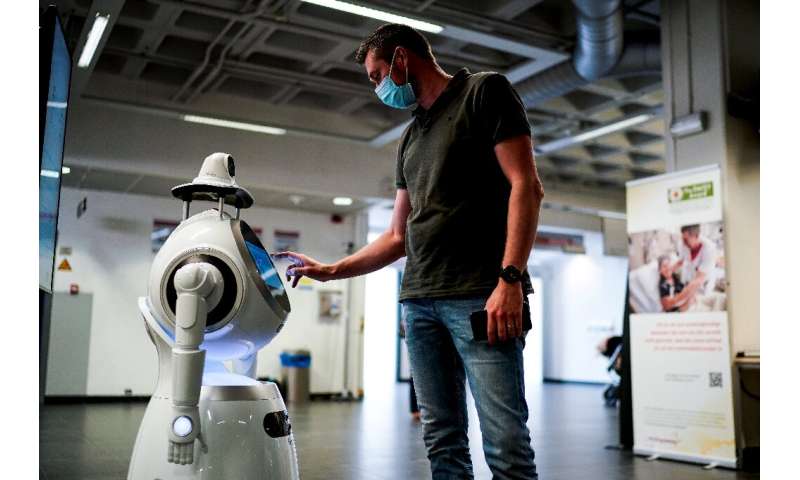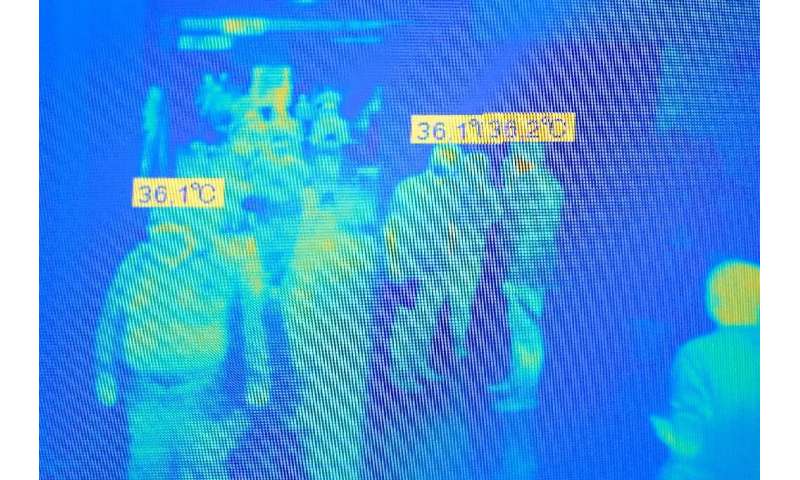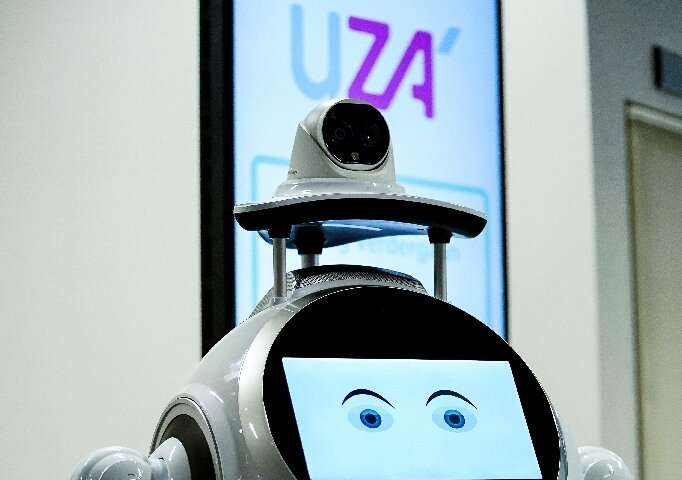
When Belgian patients fear they have caught coronavirus and head to Antwerp University Hospital, the first face they see isn’t a masked triage nurse—but a one-eyed vaguely humanoid robot.
The device, built by Belgian-firm Zorabots, greets arrivals and reads a QR code—a digital signature—provided after the patients fill out a questionnaire, online or at a kiosk.
It takes their temperature and makes sure they are wearing a mask correctly, before gauging the likelihood and severity of infection and directing them to the appropriate part of the clinic.
It’s not a diagnosis, but it’s a helpful first stage, and it minimises human staff contact with potentially infection patients before they are admitted.
“If the patient or visitor has a temperature or a mask that is not correctly worn, the screen will show: ‘You have a problem, you can not go into the hospital like that’,” said Dr Michael Vanmechelen.
“You have to check with an employee of the hospital nearby. So the robot is never going to work alone, it’s always in support of an employee who works there,” he explained.
Fabrice Goffin, joint-CEO of Zorabots, explained the thinking behind the android assistant, and explained why its interface—with a mask detecting sensor—is better than a touchscreen at the door.


“Now we are at the reopening after confinement, with a mass of people who will have to be checked,” he said.
Not only can the robot check if a prospective patient has a temperature, one of the signs of the fast-spreading disease, but “the plus of this robot is that it can detect whether people are wearing a mask.”
Belgium has suffered one of the highest per capita tolls of the novel coronavirus in the world, with more than 9,000 dead, but the country is cautiously emerging from a nationwide lockdown.
Source: Read Full Article
